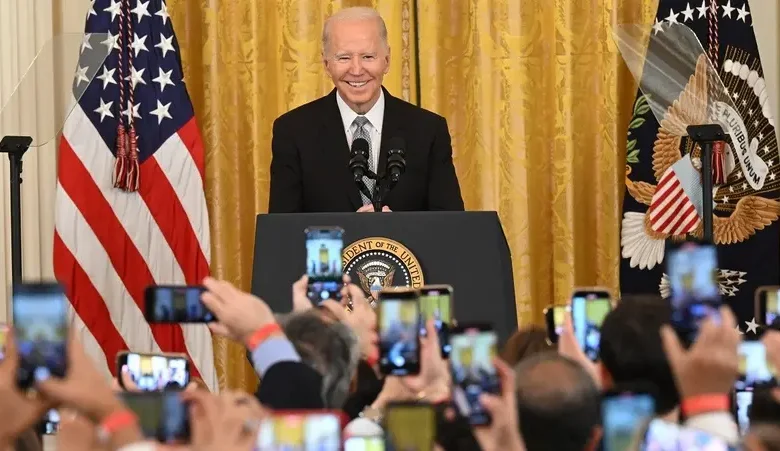Congress, former US officials blame Biden admin. for Syria normalization efforts

US lawmakers, former officials and Washington-based analysts have criticized and blamed the Biden administration for the Arab League’s move to readmit Syria and normalize ties with the Assad regime.
This week, the top four lawmakers on the Senate and House foreign affairs committees urged the Biden administration to make clear its opposition to normalization efforts and enforce US sanctions on those who support the Bashar al-Assad.
Barring Kuwait and Qatar, the Arab League voted to unfreeze Syria’s membership last weekend after over a decade of severing ties with Damascus over the Assad regime’s brutal crackdown on protesters.
Washington and Europe have stipulated that re-establishing ties with the Assad regime would be contingent upon progress on a political solution to the yearslong war.
But several Arab and Gulf countries, including traditional US allies, have normalized relations with Damascus.
“We condemn the Arab League foreign ministers’ decision to readmit Syria, the latest in a troubling trend of US partners in the Middle East and North Africa normalizing relations with the Assad regime,” read a letter from Senators Bob Menendez and Jim Risch, the chairman and ranking member of the Senate Foreign Relations Committee.
The senators cited the last 12 years of atrocities committed by the Assad regime as evidence that it is a “global pariah.”
“Improving ties with the regime will send the wrong message to its Iranian and Russian enablers as Putin repeats in Ukraine the atrocities he committed in Syria,” they said.
Arab states issued a communique that said Damascus committed to curbing drug trafficking from Syria, making progress on a political situation to the war, and facilitating the return of some refugees.
“Arguments that normalization with Assad will somehow eject Iran and Russia from Syria are not compelling, as they are the primary guarantors of Assad’s survival,” Menendez and Risch said.
As for the Biden administration, the senators said it should make clear its opposition to normalization ahead of the Arab League Summit on May 19. They pointed to Caesar Act sanctions, which are US law, and require consequences for those who undermine accountability for the Assad regime or support it.
On Monday, Chairman of the House Foreign Affairs Committee Michael McCaul and Ranking Member Gregory Meeks issued a similar statement, calling the Arab League’s move a “grave strategic mistake.”
“Assad has not changed – he will continue these atrocities while setting a global precedent that ruthless dictators can wait out accountability for their crimes. The United States must fully enforce the Caesar Act and other sanctions to freeze normalization efforts with this war criminal,” the congressmen said.
Critics have said the apparent easing of the enforcement of sanctions and less strict approach by the Biden administration was to blame for the change in the attitude of Arab and Gulf partners.
Earlier this year was the first time since taking office that the administration utilized the Caesar Act authority to issue new Syria-related sanctions.
And following the devastating earthquakes in Syria and Turkey, sanctions waivers were issued to allow for humanitarian aid to get into regime-held territories, although a majority of the damage occurred outside of these areas.
Joel Rayburn, the former deputy assistant secretary for Levant Affairs and special envoy for Syria, said the “crazily overbroad” waivers punched a hole in the Caesar Act. “The Arab capitals’ firm conclusion is that the [Biden] administration has no problem with their normalization policy,” Rayburn told Al Arabiya English.
For her part, Randa Slim, a program director at the Washington-based Middle East Institute, said Syria was never a priority for the current administration. “Their approach is a risk-free strategy that looks at what they can get now, small wins, without an expansion of time and resources.”
This policy, Slim said, goes back to the Obama era when the former president told traditional US allies that they needed to share the neighborhood with Iran. Slim added that the administration was using a “small investment, issue-based approach without a clear overall strategy for the region.”











